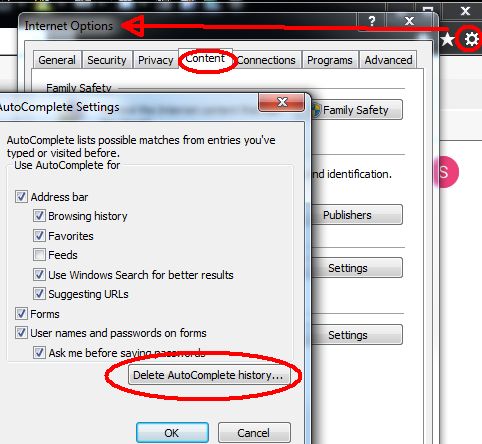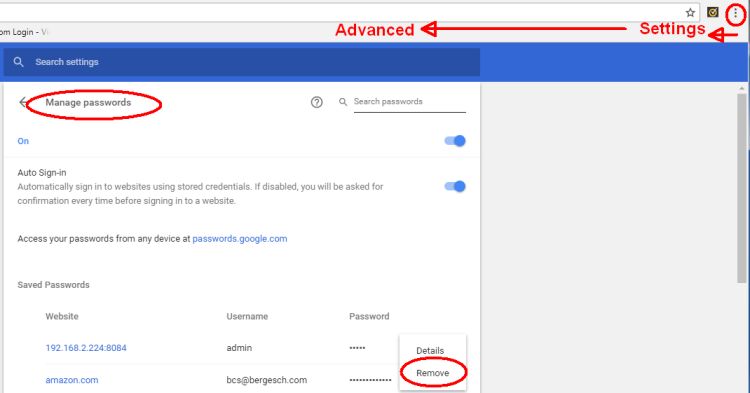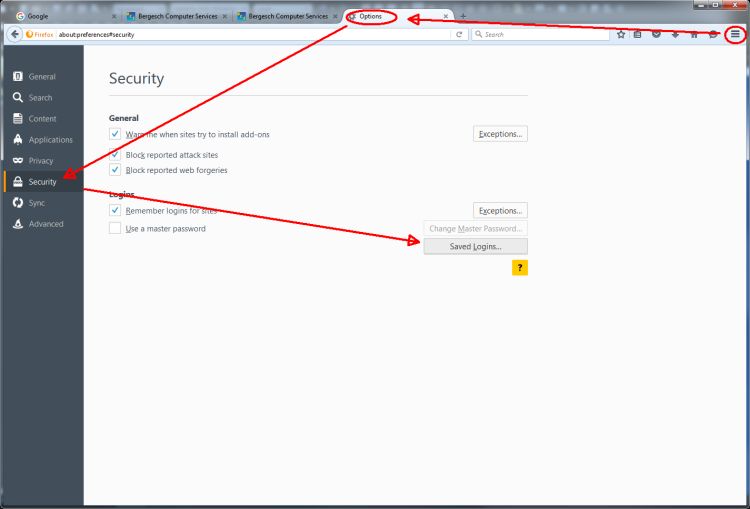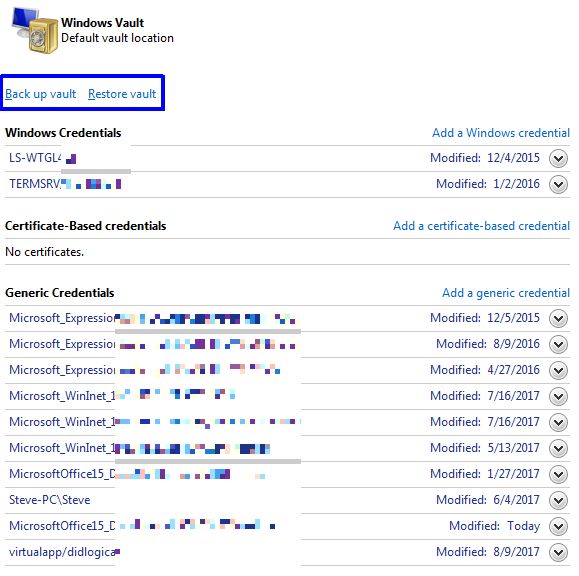Any suggestions, recommendations or ideas found on this site are applied at your own risk. This page contains our opinions based on years of cleaning up computers and assisting customers with various problems...
Passwords
More and more these days, everything is online and with identity theft being a big issue, you need to use good password! Hijacking of online accounts is fairly common, especially for those accounts having weak passwords such as common words, dates, nicknames, pet names and so on.
-
If you have a weak password, change it! See making complex passwords.
-
If you already have a complex password, add a two-step authentication. Microsoft (Outlook.com, Hotmail.com, Live.com, etc.), Google. If you have some other email, log into your online account and look for the authentication options.
We have seen too many email addresses lost because the user changed the password then forgot it. Gmail, Yahoo and other web-based email security is quite high and unless you have setup some type of secondary contact information, recovering from hijacking or a lost password is nearly impossible.
Computers
If you forget your password, you may not get back in. While the data may be recoverable, the computer would likely have to be restored to factory condition, but some caveats:
- If the computer's recovery partition is corrupt or missing, you will need the recovery media you created when it was new or purchase the same from the manufacturer.
- If you encrypted the computer using Windows Bitlocker or another encryption scheme, or were the victim of ransomware, you are simply out of luck! Hence our theme: Backup, Backup, Backup!
- While there are some password cracking applications available on the Internet, we dare say most of them are virus laden.
- Office documents see our March '15 newsletter
- Secure sites and VPNs may require the password be changed on a regular basis.
- When setting up a new computer, you are almost forced (deceptively in our opinion) to use your email address and password as the user and logon information. You do not have to! See our September '17 newsletter
Web/Internet related
We're mostly lazy a heart (us included) having the computer remember our various website logins.
Used to be:
- A good password has a combination of UPPER and lower case, numbers and characters/special symbols. Most systems now require at least 8 characters, some 12.
- Don't use words, phrases or numbers that can be looked up, e.g., your phone number, date of birth, etc. Hackers use a dictionary hack where they simply have attempt passwords using a common word or words.
Recently, the same author (Paul Grassi) of the above recommendation is now saying a string of random words is fine, e.g., bearbrowngooseearth.
We're not so comfortable with that but either way - the longer the password the better!
Clearing saved information
While you can't view or edit Internet related login information (without hacking software), you can delete the information.
Microsoft's Internet Explorer

Google's Chrome

Mozilla's FireFox

Credential Manager (local passwords)
This is where local login information is stored, e.g., shared network connections, some applications such as our Expressions app and Windows Live (bottom item).
Here you can remove or edit the credentials, but notice the blue boxed items too...
